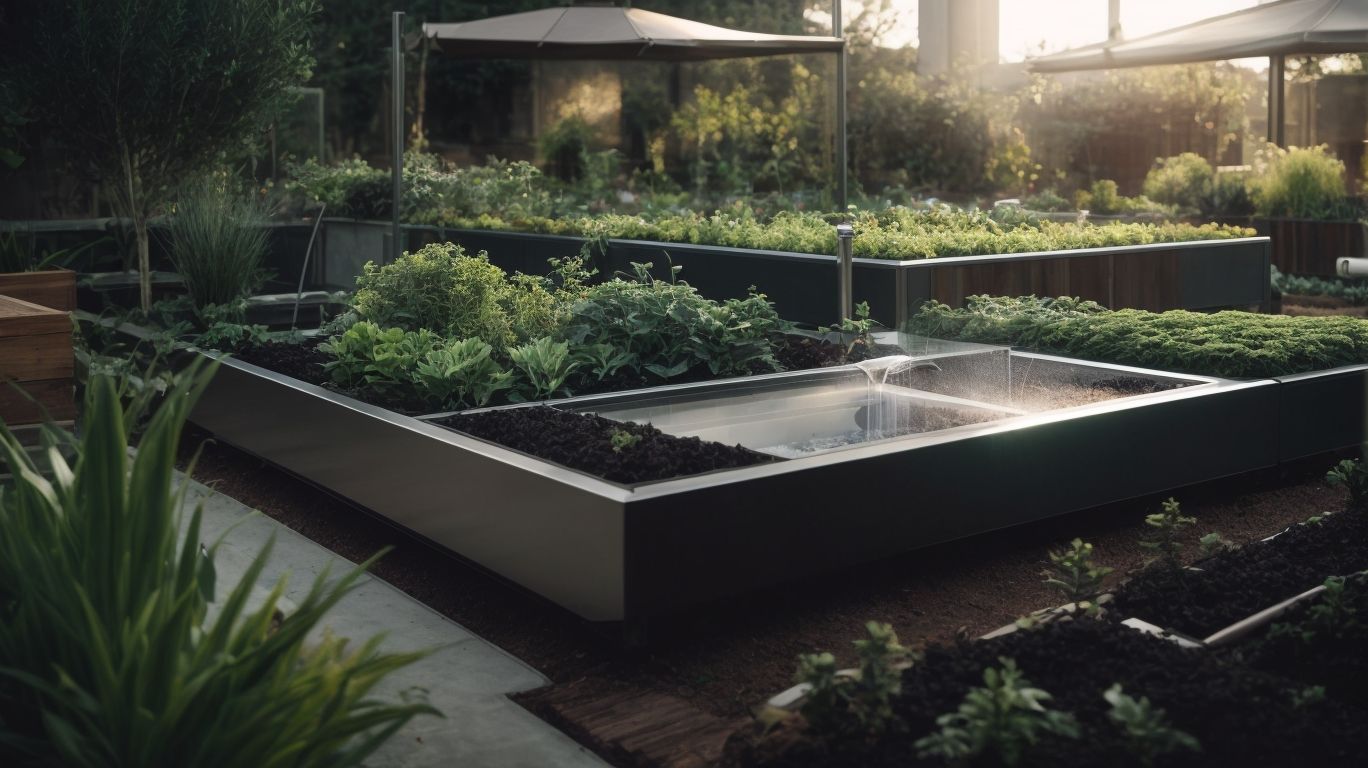No till gardening, also known as zero tillage or direct seeding, is a sustainable and environmentally friendly approach to cultivating the land without disturbing the soil through traditional plowing or digging. This innovative method has gained traction among gardeners and farmers due to its numerous benefits, including the retention of soil moisture, reduction of soil erosion, and enhancement of soil fertility. In addition to these advantages, no till gardening also saves time and energy, making it an appealing option for those seeking efficient and effective cultivation practices.
This article will delve into the core aspects of no till gardening, exploring its benefits and alternative terms, such as conservation tillage, strip tillage, and natural farming. Whether you’re a seasoned gardener or a novice enthusiast, understanding the principles and terminology associated with no till gardening can revolutionize the way you approach sustainable agriculture and ecological gardening.
Key Takeaways:
What Is No Till Gardening?
No Till Gardening, also known as no-dig gardening, is a sustainable method of cultivating gardens without disturbing the soil through tilling or plowing. This approach involves the use of natural compost, organic matter, and mulch to create a healthy environment for plants and crops.
The practice of no-till gardening is rooted in the idea of preserving soil structure and enhancing its natural ecosystem. By avoiding plowing or tilling, the soil’s structure and beneficial microorganisms remain undisturbed, promoting overall soil health. This method supports natural nutrient cycling, as organic matter and compost enrich the soil, providing essential nutrients to the plants. Advocates of no-till gardening, such as Ruth Stout and Charles Dowding, emphasize the importance of minimal soil disturbance in maintaining a thriving garden ecosystem.
What Are The Benefits Of No Till Gardening?
No Till Gardening offers a range of benefits that contribute to the overall health of the soil, including improved moisture retention, reduced erosion, enhanced fertility, and conservation of energy and time for gardeners.
Retains Soil Moisture
One of the key benefits of no-till gardening is its ability to retain soil moisture, creating a more favorable environment for plant growth and reducing the need for frequent irrigation.
By avoiding tilling, the soil structure remains intact, allowing for better absorption and retention of moisture. The presence of organic matter, such as compost and mulch, plays a crucial role in this process. These components not only help in preserving moisture levels but also contribute to improving soil structure.
Through the incorporation of natural compost, the soil’s ability to hold water increases, providing a steady supply of hydration to plants even during dry spells. The build-up of organic materials enhances the soil’s moisture-holding capacity while promoting a healthy and balanced soil ecosystem.
Reduces Soil Erosion
No Till Gardening serves as an effective measure to minimize soil erosion, preventing the loss of topsoil and preserving the integrity of the garden bed and surrounding areas.
By abstaining from traditional plowing and cultivation, no-till gardening maintains the soil structure and prevents it from being eroded by wind and water. This method of farming practice creates a protective cover and encourages the development of healthy soil bacteria.
The remnants of the previous crop form a protective cover, naturally insulating the soil surface. This process helps retain soil moisture, promotes seed germination, and reduces the impact of heavy rain or strong winds on the exposed soil.
Increases Soil Fertility
By promoting the natural decomposition of organic matter and the continuous improvement of soil structure, no-till gardening contributes to the long-term enhancement of soil fertility, supporting robust plant growth and nutrient availability.
One of the key benefits of no-till gardening lies in the facilitation of organic matter decomposition. When plant residues and compost are left undisturbed on the soil surface, they gradually break down through the action of soil organisms, releasing essential nutrients that nourish the plants. This process, aided by earthworms and microbial activity, enriches the soil with vital organic compounds and enhances its ability to support thriving plant life.
In addition, nutrient retention is greatly improved in no-till systems. The protective layer of mulch formed by undisturbed plant residues and organic materials shields the soil from erosion and excessive moisture loss. This organic cover not only conserves moisture but also helps to retain nutrients, preventing leaching and ensuring a steady supply of essential elements for plant uptake.
No-till gardening fosters a thriving microbial community within the soil. The absence of disturbance preserves the diverse population of beneficial soil organisms, including bacteria, fungi, and protozoa, which play crucial roles in decomposing organic matter, cycling nutrients, and enhancing soil structure. As a result, the soil becomes a vibrant ecosystem that sustains plant health and vitality.
Saves Time And Energy
No Till Gardening offers the advantage of minimizing the labor-intensive tasks of tilling and weeding, allowing gardeners to save time and energy while maintaining a healthy and productive garden ecosystem.
By eliminating the need for frequent tilling, no-till gardening preserves the soil structure and encourages the growth of beneficial soil microorganisms. This natural approach reduces erosion and water runoff, contributing to improved soil health. The reduction in soil disturbance helps in weed suppression and pest management. With no-till gardening, gardeners can focus on other important aspects of gardening practices such as crop selection, cover cropping, and mulching, leading to more efficient and sustainable cultivation methods.
What Are The Alternative Terms For No Till Gardening?
No Till Gardening is also known by various alternative terms, including zero tillage, direct seeding, conservation tillage, and natural farming, reflecting its alignment with sustainable agricultural practices and ecological gardening principles.
These alternative terms emphasize the diverse approaches and philosophies associated with the no-till gardening method. Zero tillage embodies the notion of minimal soil disturbance, while direct seeding underscores the direct planting of seeds without prior soil cultivation.
Conservation tillage highlights the practice’s role in preserving soil structure and minimizing erosion, and natural farming emphasizes the harmonious integration of cultivation methods with natural ecological processes. Advocates of these alternative terms assert that they promote soil conservation, enhance biodiversity, and contribute to sustainable agriculture.
Zero Tillage
Zero Tillage, a synonymous term for no-till gardening, emphasizes the absence of soil disturbance and the utilization of natural processes to maintain soil health and productivity in agricultural and gardening practices.
This practice prioritizes the preservation of soil structure, minimizing erosion and compaction, while also promoting natural nutrient cycling within the soil. By refraining from conventional methods of soil cultivation, zero tillage reduces the release of carbon dioxide into the atmosphere, contributing to climate change mitigation. It enhances the biological activity in the soil, improving its overall fertility and long-term sustainability.
Direct Seeding
Direct Seeding, an alternative term for no-till gardening, refers to the practice of sowing seeds directly into the soil without prior tilling, promoting natural seed germination and moisture retention for optimal plant establishment.
This method requires minimal soil disturbance, allowing bacteria and microorganisms to thrive, aiding in nutrient recycling and soil health. Compost can also be applied as a top layer to provide organic matter and enhance soil structure. Direct seeding not only preserves the integrity of the soil but also plays a pivotal role in soil moisture management, reducing the need for frequent irrigation and promoting sustainable water usage.
It enhances seed viability and ensures better seedling establishment by closely mimicking the natural seeding process in the wild.
Conservation Tillage
Conservation Tillage, synonymous with no-till gardening, focuses on preserving soil structure and minimizing soil disturbance through the application of organic mulch, compost, and natural soil conservation practices.
This innovative approach to sustainable land management involves leaving crop residue on the soil surface, which not only shields the soil from erosion but also enhances moisture retention and promotes microbial activity. By utilizing wood chips, hay, and straw as mulch, conservation tillage minimizes the need for tilling and fosters improved soil health. This method not only reduces labor and fuel costs associated with traditional tillage but also supports ecosystems and biodiversity by maintaining a natural habitat for beneficial organisms.
Strip Tillage
Strip Tillage, an alternative term for no-till gardening, involves minimal soil disturbance in specific planting zones, balancing soil conservation with targeted tillage for crop establishment and management.
This agricultural practice aims to enhance the distribution of nutrients and organic matter in the soil, promoting optimal conditions for plant growth. By selectively disturbing only the planting area, strip tillage reduces erosion, minimizes soil compaction, and helps conserve moisture.
The strategic placement of crop residues in the tilled strips enriches the soil with organic materials, fostering a healthy microbial community and improving overall soil structure. Farmers employing strip tillage benefit from the reduced input costs and labor, while contributing to sustainable farming practices.
Mulch Tillage
Mulch Tillage, synonymous with no-till gardening, emphasizes the use of organic mulch to create favorable soil conditions and minimize soil disturbance in gardening and agricultural practices.
In mulch tillage, the application of compost and other organic matter serves not only as a protective covering for the soil, but also as a natural source of nutrition for plants, contributing to healthier growth and enhanced biodiversity in the ecosystem.
By preserving soil structure, moisture, and temperature, mulch tillage acts as a sustainable approach to agriculture, promoting the retention of essential nutrients in the soil and reducing erosion. This method offers an environmentally friendly solution to cultivating crops while maintaining the balance of the natural environment.
No Dig Gardening
No Dig Gardening, a synonymous term for no-till gardening, promotes the cultivation of gardens without soil disturbance, utilizing natural mulch and compost to enhance soil health and plant growth.
This sustainable gardening method focuses on preserving the soil structure and biodiversity by avoiding conventional tilling, which can disrupt the beneficial microbial communities and delicate root systems.
By incorporating wood chips, straw, or leaf mulch as protective layers over the soil, no dig gardening prevents erosion, retains moisture, and encourages the decomposition of organic matter, enriching the soil with essential nutrients.
Embracing organic gardening principles, this approach minimizes the need for synthetic fertilizers and pesticides, fostering a more natural and balanced ecosystem within the garden environment.
Minimum Tillage
Minimum Tillage, a synonymous term for no-till gardening, emphasizes the minimal disruption of soil structure and the application of natural compost to support plant growth and soil preservation in gardening practices.
This method focuses on reducing soil erosion and compaction while promoting better water retention and enhancing soil biological activity. Instead of overturning the soil, minimum tillage uses techniques that disturb the soil as little as possible, maintaining the natural structure and preserving essential microorganisms.
By incorporating organic matter into the soil through compost, it enriches the soil with valuable nutrients and encourages the growth of beneficial bacteria. This approach aligns with sustainable gardening methods, promoting overall soil health and resilience.
Natural Farming
Natural Farming, a synonymous term for no-till gardening, emphasizes the utilization of natural processes and organic materials to maintain soil health and promote sustainable crop cultivation in agricultural and gardening practices.
This agricultural approach focuses on utilizing the strength of beneficial microorganisms and soil fungi, which play a pivotal role in enhancing the natural processes that keep the soil fertile and well-structured without the need for intensive tilling. Seeds are sown directly into the soil cover, reducing soil erosion and preserving moisture. Nutrient recycling and application of organic matter nourish the soil, fostering a balanced ecosystem for plants to thrive. Embracing natural farming techniques facilitates greater nutrient cycling, minimizing the reliance on synthetic fertilizers while preserving and improving soil quality.
Ecological Gardening
Ecological Gardening, a synonymous term for no-till gardening, emphasizes the ecological balance and sustainable soil management achieved through the integration of compost, mulch, and natural gardening practices.
This approach prioritizes soil conservation and the preservation of natural ecosystems, promoting healthy soil structure and fostering diverse microbial communities. By utilizing wood chips, hay, and straw as mulch, gardeners can enrich the soil, suppress weed growth, and minimize water evaporation, thereby contributing to sustainable garden cultivation. The use of organic materials such as these not only fosters nutrient-rich soil but also aids in minimizing the reliance on synthetic fertilizers and pesticides, aligning with the principles of ecological gardening.
Sustainable Agriculture
Sustainable Agriculture, a synonymous term for no-till gardening, emphasizes the sustainable management of soil resources and the utilization of natural processes to support long-term crop cultivation in agricultural practices.
This approach focuses on minimizing soil disturbance, preserving soil structure, and enhancing biological activity, creating a self-sustaining ecosystem within the soil. Nutrients and microorganisms play a crucial role in this process, contributing to natural fertility and overall soil health. By reducing reliance on artificial inputs and promoting soil conservation, sustainable agriculture aims to maintain and improve the quality of the land for future generations.
Frequently Asked Questions
What is alternative terminology for no till gardening?
Some alternative terms for no till gardening include zero tillage, reduced tillage, and conservation tillage.
What is the main concept behind no till gardening?
No till gardening involves planting and growing in a way that minimizes or eliminates disturbance to the soil, preserving its natural structure and biodiversity.
What is the benefit of using alternative terms for no till gardening?
Using alternative terms for no till gardening can help to avoid confusion and better define the specific method of gardening being practiced.
Is no till gardening suitable for all types of soil?
Yes, no till gardening can be practiced on any type of soil, as it focuses on preserving the natural structure and composition of the soil rather than changing it through tilling.
Can I still use fertilizer in no till gardening?
Yes, fertilizer can still be used in no till gardening, but it is recommended to use organic fertilizers or compost to maintain the health of the soil.
Are there any disadvantages to no till gardening?
Some potential disadvantages of no till gardening include increased weed growth and the need for specialized equipment, but these can be managed with proper planning and techniques.


